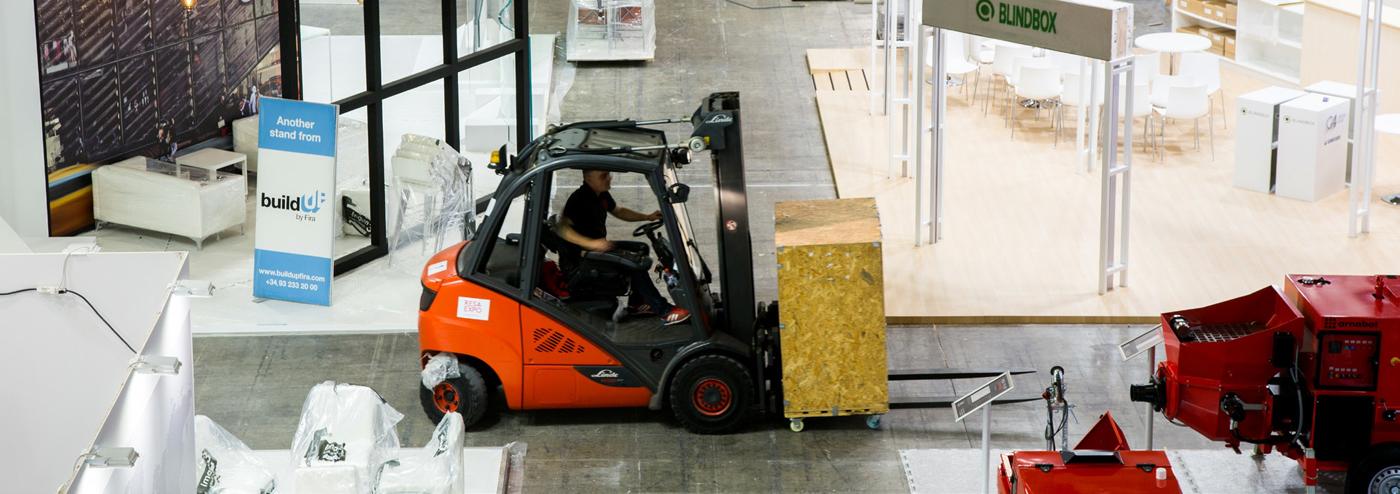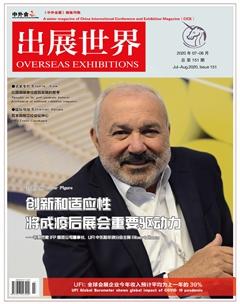Trade fair logistics:When importing is difficultt
By Peter Borstel
Two partners united by the International Exhibition Logistics Association (IELA) know how to deal with difficult markets. Including Russia and Africa.
Christoph Rauch and Elizabeth Niehaus were featured in the lecture programme of Euroshop 2020 last February. Under the motto “No Exhibit, No Show” they presented new IELA solutions and ways out of customs difficulties with trade show imports. The IELA board member and IELA executive officer discussed emerging countries and particularly difficult markets. The subjects they addressed included the challenge of delays due to lacking capacities or increasing bureaucracy as well as how exhibition and events logistics companies can meet special requirements for stand designers and exhibitors. And, of course, they discussed the impacts of digitisation on how exhibits and stands finally reach the venue.
Christoph Rauch presented two case studies on Russia and Africa. He highlighted, for example, that customs procedures are taken very seriously in Russia. High fines and taxes are enforced for not abiding by the rules. Rauch believes that the word “complex” is an understatement when it comes to sending exhibition cargo to Russia. It is a notoriously difficult procedure and often a costly undertaking. As an example, he cited the importation of a stand designers tool kit for temporary purposes. He claims that one cannot simply declare the kit as “one toolbox” or at least as several groups made of similar items. Every single tool must be listed separately, citing the name of the tool manufacturer, type designation and serial number.
In addition to this, the country has unique intellectual property protection laws, as Christoph Rauch explains. This necessitates special import permits from manufacturers and copyright owners. The managing director of the logistics company BTG, based in Langweid near Augsburg, again brought up the example of the stand designers tool kit. The stand designers customs broker needs to obtain an import permit - e.g. from Bosch, in order to conduct customs clearance, say, of the stand designers electric screwdriver in the tool kit. This fictitious case shows that many trade fair transports with supporting documents are doomed to fail despite the best of intentions. The almost “religious fervour” of the Russian customs authorities is maybe explained by the fact that around 30 per cent of Russias federal budget stems directly from import customs duties and taxes. Plus: Although the Russian customs code should be applied consistently, different customs offices use different interpretations.
According to Rauch, exhibition logistics in Africa involves a huge bureaucracy within all government bodies in many countries. When working with customs brokers in African countries it is best to try and work with someone one has had some kind of previous dealings with. Or somebody who has been referred to ones company. Working with an unknown broker can lead to problems. Delaying tactics are frequently used to extort money. Many of the problems at border crossings can be alleviated by making use of an IELA member. The lecture by Christoph Rauch and Elizabeth Niehaus concluded with a presentation of the new IELA organiser & exhibitor portals. There you can find tips and tricks from experienced freight forwarders with hands-on solutions, as well as advice to help prepare the transit of goods across borders. (www.iela. org).(This article was published in TFI issue 2/2020)

